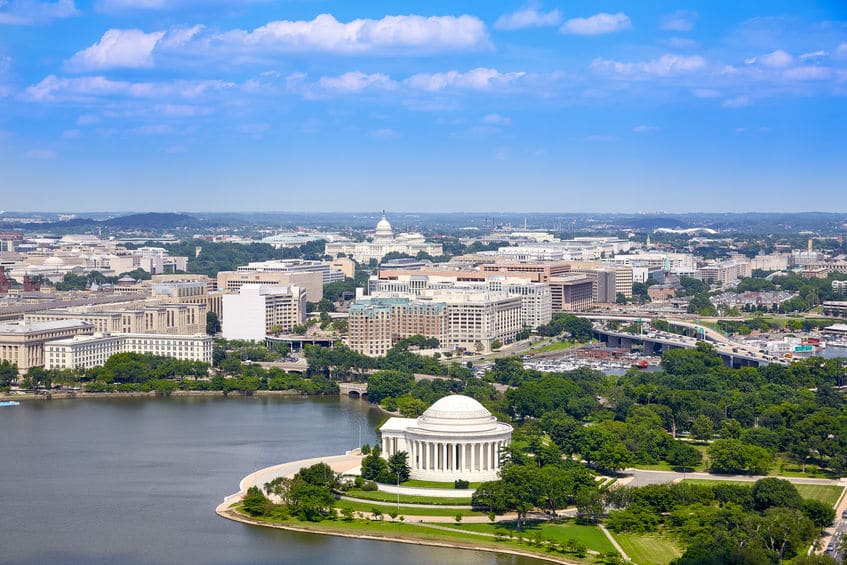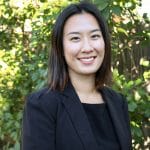
By Guest Author Angell Kim
My name is Angell Kim, and I am a Korean-American born and raised in Texas. I graduated from the University of Texas at Austin in 2014 with a BA in International Relations and a Minor in Latin American Studies. After graduation, I worked in project management for an international medical device consulting firm and then served in the northern coast of Colombia as an education and community development Peace Corps Volunteer from 2016-2018. When I closed my Peace Corps service, I stayed in Bogotá, Colombia where I worked for the Center for Reproductive Rights.
I was selected as a 2020 Donald M. Payne International Development Fellow, and upon receiving my master’s degree, I will serve as a US Agency of International Development (USAID) Foreign Service Officer. I wanted to complement the article, The USAID Donald M. Payne International Development Fellowship: Application Tips for Aspiring Foreign Service Officers, written by my colleague, Hoang Bui, by shedding light on my personal experiences and giving advice about the application and interview process for this unique opportunity to enter the USAID Foreign Service.
What is the Donald M. Payne International Development Fellowship?
The Donald M. Payne International Development Fellowship program attracts diverse and outstanding individuals to enter the Foreign Service with USAID. Selected fellows receive funding to attend a graduate program relevant to USAID, complete two summer internships, and receive ongoing mentorship and professional development leading up to their appointment as USAID Foreign Service Officers.
How did you hear about this opportunity and why did you apply for it?
I first heard about the Payne Fellowship when I was a Charles B. Rangel Summer Enrichment Program Scholar in 2012. This experience exposed me to international affairs careers and opportunities such as the Payne Fellowship. At the time, the Fellowship was a new program with only two Payne Fellows for 2013. Now, it has grown to 58 fellows. After that experience, I completed my undergraduate degree in 2014, worked in multicultural environments, and honed my Spanish language skills.
My first job was in project management for a medical device consulting firm, which enabled me to lead projects by interculturally communicating to clarify and resolve issues between US American clients and East-Asian consultants, whose native language was not English. This experience taught me the importance of empathetic communication when working in a multicultural environment.
After this experience, I received the opportunity to serve in the northern coast of Colombia to train Colombian teachers to teach English more effectively with limited resources and assist with community projects. I had studied Spanish since middle school, but I would say the northern coast of Colombia really taught me to become an advanced speaker and a berraquera, or a courageous person, as they say there. The Peace Corps served as first-hand exposure to working in a different language and culture with sensitivity. It also taught me to work with the community to best understand their needs and plan and collaborate together to meet those needs.
Before I had first gone to Colombia for the Peace Corps, I was told that “The only risk is wanting to stay,” and, well, here I am, still in Bogotá, Colombia. I got a job with an NGO, the Center for Reproductive Rights, and learned to adapt to another new environment despite it being in the same country, Colombia. I learned how to collaborate with lawyers by understanding some of the challenges they faced when working on the many platforms the NGO used. I helped train my colleagues to effectively navigate and use to their benefit those platforms which made collaboration much more efficient.
I am sincerely grateful for my diverse experiences, as they have helped me grow and become a more understanding and mindful individual in the context of international development. I believe the insights and the maturity gained from my experiences helped me to become a competitive applicant for the Payne Fellowship.
Let’s fast-forward to mid-2019, when I felt eager to pursue higher education with funding because I realized that most mid-level international development jobs require a Master’s degree. As I was researching and applying to graduate schools for the Fall of 2020, I knew my personal motivation for the next chapter of my career was to represent the United States and commit to public service as a Korean-American woman. I remembered the Payne Fellowship and how it offered the opportunity to build my dreams and after a lot of back and forth, and overcoming the many what-ifs, I decided to apply for it.
Applying to fellowships such as these require time, solid planning skills, and drafts and drafts of essays, but here are some tips that can guide your way for the next application cycle.
Helpful Tips to Prepare Your Application
1. Do your research.
Know exactly why you want to be a Foreign Service Officer (FSO) for USAID. Try to avoid clichés such as “I want to travel the world and help others.” Last year, the Fellowship received around 500 applications. If 75% of those applications stated the same thing, you certainly want to be the one who is unique and different. I would recommend implementing the CCC approach in your essays: be Clear, Concise, and Compelling.Also, make sure you understand the difference between the Foreign Service of USAID and the State Department.
2. Review, review, review.
Be meticulous and know what you need for the application and organize your time in gathering materials. Heads up! You will need to request two recommendations and you should give your recommenders around two to three weeks to write your letters. You also need to request the Student Aid Report (SAR) from FAFSA, and it would be helpful to request that at the start of your application because it takes around three to five days to process.
Have friends, peers, or family members to review your essays. You definitely want another pair or maybe two pairs of eyes to review your motivation essay and financial need essay.
After I clicked “submit,” to my application, I kept myself busy by researching graduate programs that were affiliated with the Paul D. Coverdell Fellowship, which is another fellowship for Returned Peace Corps Volunteers that provides funding for specific graduate programs at affiliated universities. I would suggest to first apply to the Payne Fellowship and then apply for graduate programs after, or you can do it simultaneously by maintaining important deadlines. There is no wrong way.
Helpful Reminders to Keep in Mind for Your Interview
1. Dressing business professional is a must!
2. Think of the interview as a slow and steady race.
If you do not understand the question, ask to repeat. There is no shame in that!
Take a pause before you reply. Sometimes, due to our nerves and anxiety, we cut to the chase too quickly and respond immediately after the interviewer asks us questions. Take a pause to absorb and understand the question, think about one personal example to use in your response, look at your interviewer in the eyes and then speak. Don’t forget to breathe calmly throughout the interview!
3. Answer the question.
This seems so straightforward, but I started realizing during my interview that I was…rambling! It’s important that when you understand the question being asked, you simplify it in your head so that you can respond to it properly, effectively, and clearly. Once I realized I was rambling, I worked towards summing up my answer clearly ending it by restating the question.
4. Make travel plans wisely.
If you are an overseas applicant, as I was, try to organize your flight, to the best of your ability, to give reasonable time to rest before the big day of the interview. I had flown from Bogotá to Dallas, Texas on my account, and then the Payne Fellowship provided financial support for the domestic leg of the trip to arrive in Washington, D.C. as well as lodging. I got into D.C. fairly late, and our interview started the next day at 8 am sharp. I would not recommend that to any future applicant.
5. Be attentive, unique, and positive.
My interviewers were also probably beat like I was, because they had just interviewed 5 other people before me! Despite the anxiety or exhaustion of the day looming over you, smile and showcase your experiences to answer each question. It is wise to prepare your unique experiences and challenges that you faced and overcame prior to the interview, fully understand your aspirations to become a USAID FSO, and be able to explain how you can contribute to the agency from your skills and experiences. Each interview lasted around 30 minutes.
What are you looking forward to as you begin your fellowship?
I hope to gain from the Fellowship strong human connections with the people I work with. I also seek to inspire other Asian-American women to take risks, try new endeavors, and get involved with their communities, in politics, and in any other realm. I hope to mentor younger aspiring FSOs as I have received a plethora of mentorship from more experienced colleagues, professors, and friends. I seek to give back by lending a hand through mentorship and guidance to future generations.
If you are interested in international development and the Foreign Service of USAID, and need financial assistance, check out the Donald M. Payne International Fellowship! It has been so motivating to see diversity in the Foreign Service, thanks to fellowships such as these. I am looking forward to representing U.S. diversity and women in leadership while serving others through USAID and I hope you can add to that diversity by applying to this Fellowship!

Interested in applying? Bookmark the Donald M. Payne International Fellowship to your ProFellow account!
© Victoria Johnson 2020, all rights reserved